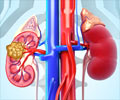What are the Causes and Risk Factors of Renal Cell Carcinoma?
Renal cell carcinoma (RCC) can occur sporadically or in a hereditary fashion. In Europe, the incidence has gone down mainly because of the reduction in the number of people who smoke.
In both the forms of renal cell carcinoma, the short arm of chromosome 3 (3p) is involved in the pathogenesis of the disease. Genetic studies carried out on high risk family groups have revealed that mutations in the tumor suppressor genes, such as VHL or TSC, or in the oncogenes such as MET, leads to the initiation of the disease. The incidence of kidney cancer in the United States rose by 2% between the years 1975 -2006. However in Europe, mostly Scandinavian countries, the incidence has gone down mainly because of the reduction in the number of people who smoke.
Although the exact cause is unknown, there are a number of environmental and hereditary factors that increases a person’s risk for renal cell carcinoma. They include family history, high blood pressure, long-term dialysis, smoking, having horse- shoe kidney, polycystic kidney disease or Von Hippel-Lindau disease (a hereditary disease that) and tuberous sclerosis.
Cigarette smoking almost doubles a person’s risk for RCC and is seen to be the contributing factor in almost one third of all cases. The risk is dose-dependant.
Kidney transplant patients are also at some risk for RCC, especially if the original kidney acquires renal cystic disease.
Usage of phenacetin-containing analgesia in large quantities or long-term use of non aspirin nonsteroidal anti-inflammatory drugs (NSAIDs) is also believed to put the user in a state of higher risk.
Four hereditary syndromes have been linked to the occurrence of renal cell carcinoma. They include -
- Von Hippel-Lindau (VHL) Syndrome: This is an autosomal dominant syndrome that predisposes the sufferer to different cancer-type changes. RCC develops in 40% of those with VHL. In several patients with sporadic RCC, the VHL gene is mutated.
- Hereditary Papillary Renal Carcinoma (HPRC): This is a disease that is inherited in an autosomal dominant fashion. Mutations in the Met gene have been identified in this condition.
- Familial Renal Oncocytoma (FRO) linked with Birt-Hogg-Dube syndrome (BHDS): This is a condition wherein the affected individuals can develop cancers of the kidney. BHDS is a familial syndrome in which the affected individuals can develop non-malignant tumors of the hair follicles, predominantly on the regions of the face, neck and upper trunk. They are very prone to develop cancers of the kidney, tumors or polyps of the colon and cysts in the lungs.
- Hereditary Renal Carcinoma (HRC): People with this condition are predisposed to develop oncytomas and near-benign kidney tumors.



















